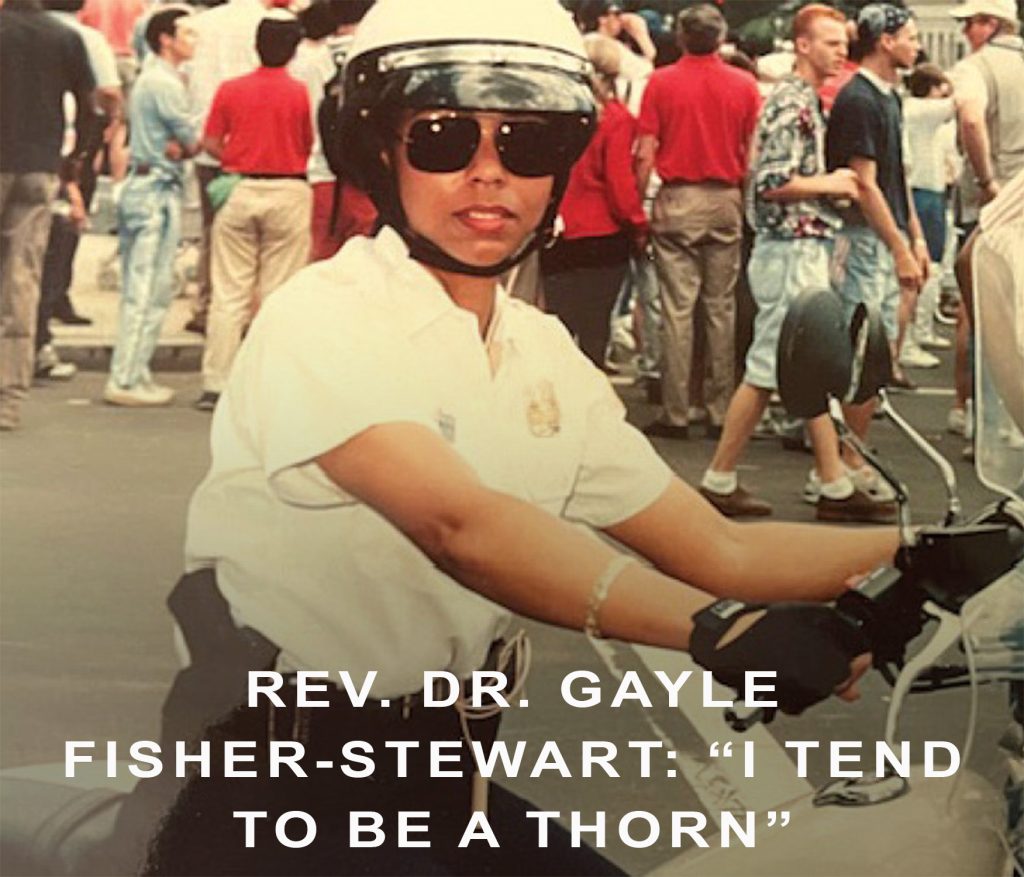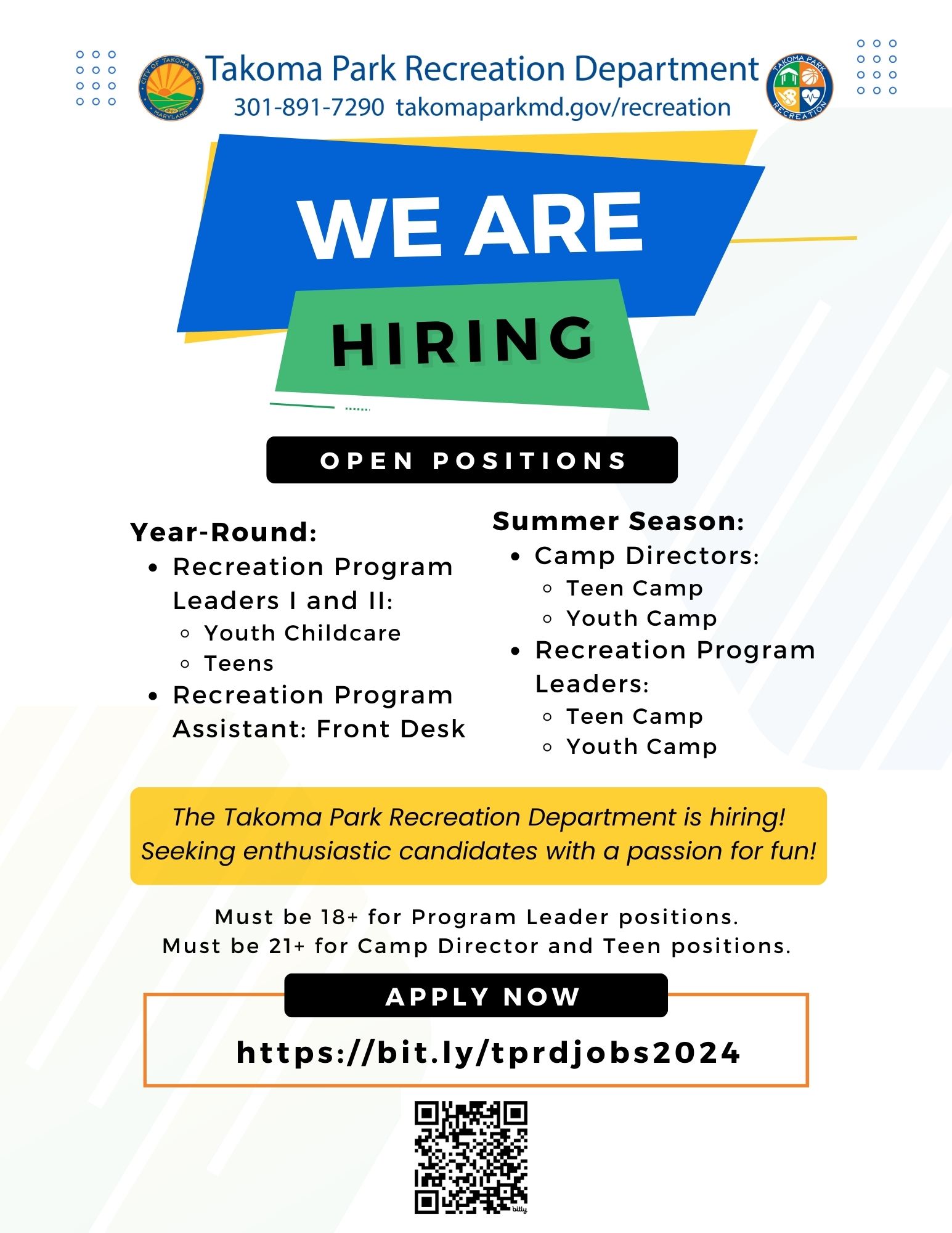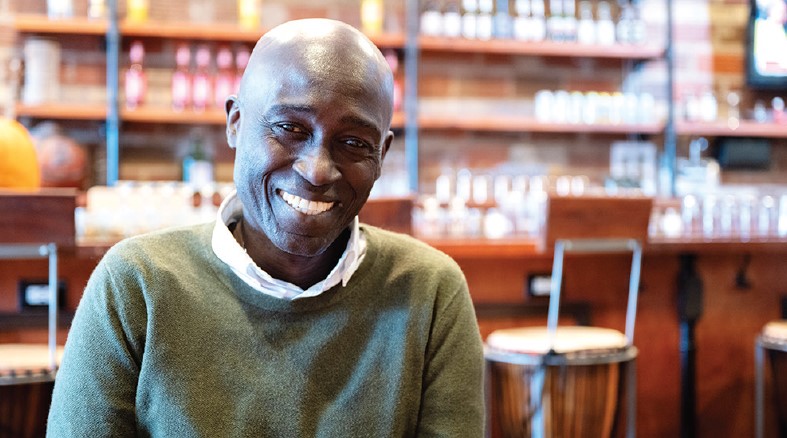By Eric Bond
As a rookie police officer in the District of Columbia Metropolitan Police Department in the early 1970s, Gayle Fisher-Stewart responded to a call for service in Georgetown. When she rang the bell, the homeowner came to the door and, seeing that Fisher-Stewart is Black, asked her to come around to the back door.
“I said, ‘Obviously, you don’t want police service today.’” She returned to her patrol car and notified the dispatcher that no service was needed. Throughout her police career, Fisher-Stewart paid attention to how she was received as a Black woman in her various ranks and roles and in different districts around the city.
Fisher-Stewart started out serving warrants. She also worked on the emergency response barricade team (then known simply as the barricade team) and in communications. She retired in 1992 as a captain, a rank that was unusual for a woman at that time. Fisher- Stewart remarks on how much things have changed, even as barriers and prejudices persist that hold people back in professional life—not to mention civic life. She’s proud of her work training officers coming into the police department to change their mindsets about policing and about the communities they serve.
After retiring from the police force, Fisher-Stewart focused on raising her son, David (here in Takoma Park); teaching criminal justice at the University of Maryland; and consulting—always thinking about issues of justice, community need, and spirituality. Her area of special interest, as a professor, is the history of policing as it intersects with race in the United States.
With church as a vital—and sometimes problematic—aspect of her life, Fisher-Stewart decided to go to seminary in 2007. That path eventually led to ordination as a priest in the Episcopal Church in 2015. Now retired from active parish ministry, she currently assists churches determine their role in eliminating guns and understanding how to focus on mission. And on occasion, she still preaches. While serving as assisting pastor at Calvary Episcopal Church in Washington, D.C., she founded the Center for the Study of Faith in Justice, which conducts research and creates a safe space for the discussion of vexing issues. She is also the president for the Washington, D.C., chapter of the Union of Black Episcopalians.
In 2019, Fisher-Stewart accepted the position of chaplain for the Takoma Park Police Department.
“I am engaged in a ministry of presence,” says Fisher-Stewart about her role as chaplain. “I don’t try to convert anybody. If you don’t want me to pray, I don’t pray for or with you. I don’t make those assumptions. I’m an extra set of ears for department personnel who need somebody who’s not affiliated with the government, not affiliated with the police, even. I’m just there to listen and to ask questions.
“What is interesting about Takoma Park, particularly under the leadership of Chief [Tony] DeVaul is that we don’t have problems other departments face. The department is not under a consent decree. Our officers are not involved in abuse issues. Shootings are [virtually] nonexistent, so my role is primarily to be a support to personnel—when they want it. And if there is a Coffee with a Cop event or other community activities, I’ll be there.”
Fisher-Stewart points out that activities like the National Faith and Blue event in October are valuable for building bridges and fostering better relationships between the police and their community. “We had a LEGO Serious Play session next to Sligo Creek Parkway for Faith and Blue. You see the police and the kids playing together, and the kids had to interview the police. So I said, ‘Well, at least when these officers see these kids, they will remember having built LEGO bridges with them in the park. It’s making a connection, and that connection is important because if we have a relationship, then [a police officer is] less likely to ascribe negative motives to a kid. And the young people are less likely to see the police as enemy. The more we can establish relationship between the police and the community, the easier everybody’s job is.”
Fisher-Stewart points out that as a retired police captain, as a scholar, and as a mother, she brings understanding from multiple
perspectives to her role as chaplain.
“Policing as we have it now, was created to maintain and control Black folks,” says Fisher-Stewart. “We’ve been trying to reform policing since the 1930s, but what happens is that it resets itself. We reform and then it comes back to what it was designed to do [control Black people]. So in order to have the policing that we need for today, we need to abolish it as it was created and recreate it to what we want it to be.”
She points to Police Chief DeVaul, who grew up in Takoma Park, as a driver of a community-focused policing, which was in vogue during a recent reformation effort.
“I tell him that he’s a blast out of the past because he’s saying, ‘If you want to take care of some of these problems, you have to go to root causes.’ It’s easy to arrest and lock people up, as opposed to figuring out why this is occurring. The figuring out takes money. It takes time. It takes effort— and people don’t want to do that. But that is at the foundation of community policing.
“And so when you talk about defunding policing, [you’re saying that] the police cannot do everything. They should not do everything. People want the police to be social workers, teachers, parents, priests, everything. And they can’t be—because they’re not trained for that.
“So what we can do, for example, is have mental health practitioners embedded with the police. When we find out the percentage of calls that go for mental health issues, we take that money and put it in a program that provides mental health services.”
Along with police reform, Fisher- Stewart is passionate about church reform.
“A lot of times, churches are about maintaining the institution as opposed to being more like Jesus. We tend to do charity as opposed to following the mission of Jesus,” says Fisher-Stewart. Charity keeps people dependent on the giver. Mission fixes things so people do not have to rely on charity. True ministry and community policing are similar. You fix the problems that negatively affect people.
“So how do we take all these half-empty buildings we call churches that are closed during the week and turn them into something that can help the unhoused? How do we figure out why people come to us every Monday for this brown bag lunch? How do we stop people from having to come to the church to get this bologna sandwich? Charity is handing out 150 meals a day— it is about the giver. Ministry is about the person. How do we work together so that all people thrive in this world?
“Being ordained, you get to the underside of the church and what it does and does not do. You can get frustrated with the church and leave, or you could be like the thorn in Paul’s side and say to the church, ‘You all are not doing what you’re supposed to do. You’re not showing people Jesus.’” “I tend to be a thorn,” says Fisher-Stewart, pointing to her two published books and her most recent book, which is in the publication process.
Preaching Black Lives [Matter] is a series of essays that examine the role of the church in ending systems of injustice. In Black and Episcopalian: The Struggle for Inclusion, Fisher-Stewart argues that whiteness is embedded in every aspect of religious life and that inclusivity needs to be more than a superficial pose. It needs to be authentic to each person.
Her newest book is Church Hurt: Who Will Pay Reparations on My Soul?
“How can the church become trauma-informed,” asks Fisher- Stewart. “How do we really help people heal? We say want to eradicate anti-Black racism, and white supremacy. The Episcopal Church has admitted white supremacy and anti-Black racism is at the foundation of the church, and since we know that, how do we eradicate it? How do we deal with the racialized trauma people bring to the church and the trauma caused by the church?”
Fisher-Stewart says that whether in the home, on the street, in a patrol car, or in a pew, we need to recognize that people in our community are dealing with difficult issues, and we need to be there for each other.
“Coming from my perspective where everything belongs to God, and God created enough for everybody, there’s no reason for there to be want—except that we allow it.”
Check out the full Takoma Park February Newsletter.





